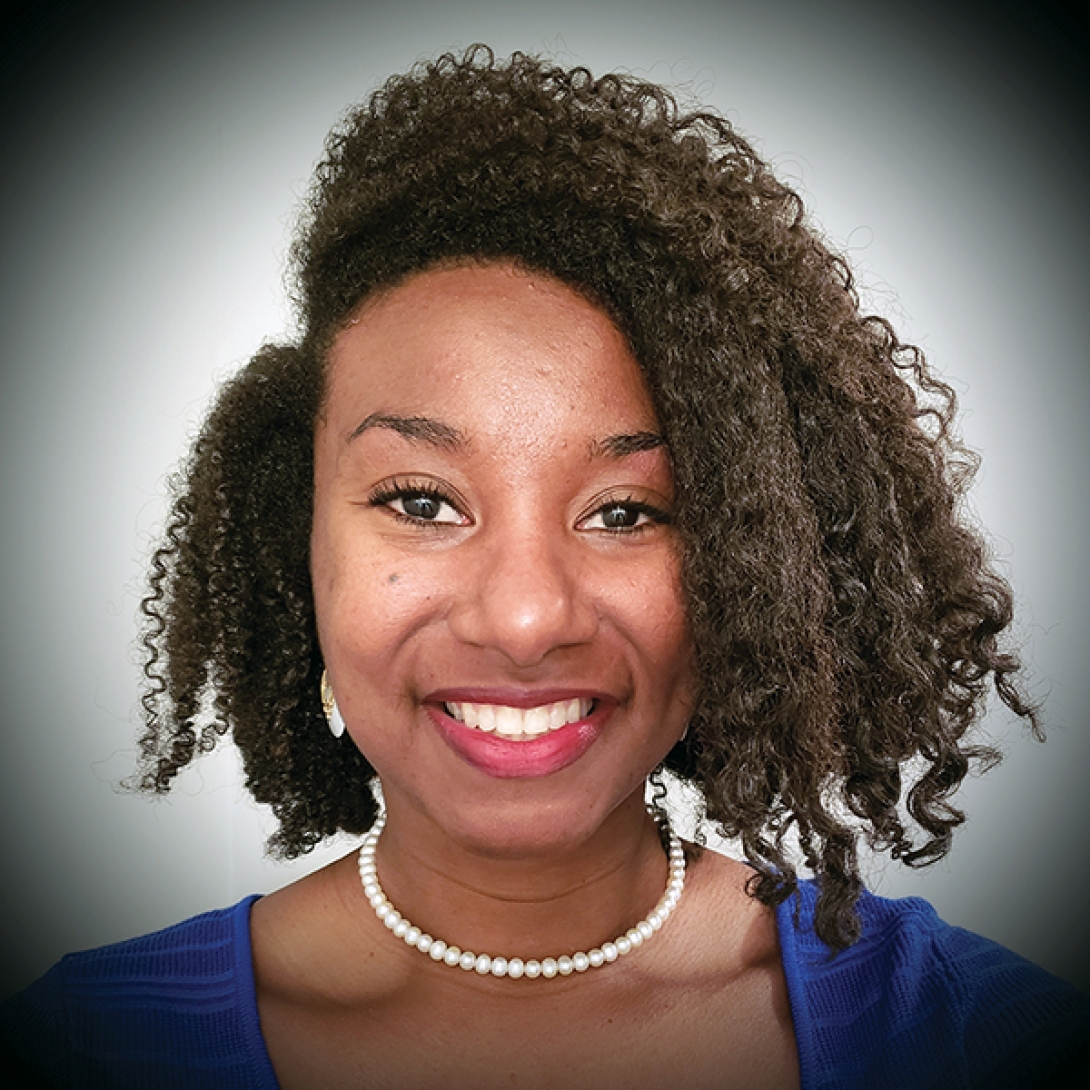Christina Chapman, M.D. (Residency 2017), studies ways to improve equity in health care systems and the medical workforce to better meet the needs of the population. Chapman, assistant professor of radiation oncology, recently served as a discussant on a panel on workplace inequities at the annual meeting of the American Society of Clinical Oncology (ASCO).
We asked her about diversity, equity, and inclusion, in medicine. Here, she discusses the data as well as personal experiences of discrimination.
Tell us about your ASCO presentation.

As a discussant, my role was to help put two submitted research abstracts into a broader context. One was a survey of gynecologic oncologists that looked at the prevalence of sexual harassment and other gender-based challenges in the field. Even in this field that serves women as a patient population, and that has a large number of female physicians, there are still many gender-based challenges. Seven of 10 women surveyed had experienced sexual harassment in training or practice.
The second abstract examined how speakers are introduced at academic meetings, with data drawn from the ASCO annual meeting. The researchers watched all of the presentation videos for the prior two years. They found that women are less likely to be introduced professionally — calling them "Doctor" and their last name, or giving their credentials. Female speakers were more likely to be introduced by first name only — 17% of the time compared to only 3% for men.
Have you personally experienced that?
Yes. This happens all the time. It happens to women all the time. It happens to people of color all the time.
When I was a resident I tried explaining to some of my male physician colleagues that patients called me by my first name even when I introduced myself as "Dr. Chapman." They mostly discounted it, didn't believe it, or they said, "Oh, it's just about the patients feeling more comfortable." But patients don't do that to male doctors nearly as often.
"When we discriminate against individuals in our health care workforce, we don't benefit fully from their abilities. ... Small gears turn larger cogs of bias."
Some of my African American physician colleagues, when they're in the hospital, will be handed bed sheets due to the mistaken assumption they're custodial staff. If you're a woman, you're often mistaken for a nurse, even when your name badge is clearly displayed. The problem is not necessarily being confused for another important member of the care team (which includes all hospital staff), but that individuals refuse to treat women and racial/ethnic minority physicians as they would white or male physicians, even when their identities and roles have been made clear.
Are there other examples?
Women get called by other unprofessional terms. People call me "baby" or "sweetie" or "honey." No one calls their male physician "baby."
I highlighted several other studies on this topic of bias that manifests as erasure of one's full identity. There was a powerful opinion piece in JAMA titled "My Name Is Not 'Interpreter.'" It was written by a psychiatrist who talked about how, when he was a trainee, his attending physician would just call him "Interpreter" because he spoke Spanish. He also talks about being mistaken for a valet.
And I discussed some of the data about gender and racial bias around names. There have been a number of studies using resumes, where the researchers varied the gender or race of the applicant. And when it's a black-sounding name or a female-sounding name, you get fewer call-backs, you're perceived as less competent, or you get offered a lower salary.
What impacts do these biases end up having?
There are data that show when you remind women of their gender or African Americans of their race before a test, they do worse. It's called "priming." Tying all this together, the point is that, if you introduce a male speaker as Dr. Last Name and you introduce me as Christina, you're priming the audience to remember him as a physician, a scholar, a thought-leader, but you're not reminding them of the same thing about me. This may affect the way that the science is both delivered and received, resulting in a waste of resources that were used to generate it.
What do you wish people understood better?
The pushback is often: "So, someone calls you by your first name, so what?" Studies have shown that discrimination is associated with poor birth outcomes, elevated cortisol levels, and shorter telomere length. We know it's wrong — morally and ethically — to discriminate against people. We know it affects health. But if those things alone were enough, we would have gotten rid of it already.
The business case for caring about these issues is that it results in ineffective use of human capital. A landmark study that was published two years ago showed that when patients are taken care of by female physicians, they do better. The study found patients treated by women were less likely to be readmitted to the hospital or to die within 30 days.
In June, National Institutes of Health Director Francis Collins, M.D., Ph.D, issued a public statement saying he would no longer speak on all-male panels. Do you think the field is starting to come around?
Yes, I do. I think social media and the #MeToo movement have drawn a lot of attention to issues of gender bias and sexual harassment — and empowered a lot of people to share their stories.
We need standardized processes to reduce bias — conference introductions, for example. We can't just rely on individuals just being better and think that's going to fix the problem. Tatiana Prowell, M.D., ASCO Cancer Education Committee chair-elect, for example, has expressed her commitment to ensuring all speakers and moderators receive a standardized professional form of address in education sessions at the 2020 meeting.
What's your takeaway?
The point is that when we discriminate against individuals in our health care workforce, we don't benefit fully from their abilities. The omission of credential is just the tip of the iceberg. Small gears turn larger cogs of bias.
We need to accept that, at this point, we have good data for discrimination. If this were a Phase 3 drug study, tomorrow everyone would be prescribing the drug.





